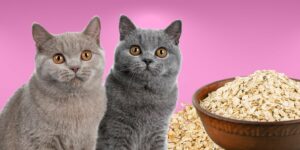Yes, cats can eat corn in moderation as a treat. However, corn is not an essential part of a cat's diet and should only be offered occasionally. Most commercial diets contain corn or corn gluten in some percentage, and understanding your cat's dietary needs is crucial to ensure their health.
Cats as Obligate Carnivores
Explanation of obligate carnivores
Cats are obligate carnivores, meaning they have a biological requirement for animal-based protein and nutrients. They have evolved to consume and thrive on a diet primarily composed of meat.
Nutrient requirements for cats
Cats require nutrients such as taurine, arginine, and various vitamins and minerals, which are primarily found in animal-based protein sources. Plant-based proteins like corn do not provide all the essential nutrients cats need to thrive.
The role of animal-based protein in a cat's diet
Animal-based proteins provide cats with essential amino acids and nutrients necessary for proper growth, maintenance, and overall health. Additionally, animal-based proteins help support healthy muscle development and energy levels in cats.
Corn Nutrition and Health Benefits
Nutritional components of corn
Corn is a starchy vegetable that is high in carbohydrates and contains some protein, fiber, vitamins, and minerals. It is a good source of vitamin C and B vitamins, as well as magnesium and zinc.
Potential health benefits for humans
Corn offers many health benefits for humans, including supporting digestion, providing energy, and promoting a healthy immune system. However, these benefits may not necessarily apply to cats.
Corn allergies and sensitivities
Some cats may experience allergies or sensitivities to corn. Signs of a corn allergy may include itching, skin irritation, or digestive issues. If you suspect your cat has a corn allergy, consult your veterinarian.
Potential Health Risks of Feeding Corn to Cats
Choking hazards
Corn on the cob can be a choking hazard for cats. Always cut corn off the cob and serve it in small pieces to reduce the risk.
Digestive issues
Cats may experience digestive problems if they consume too much corn. Symptoms may include stomach pain, diarrhea, or vomiting.
Impact on blood sugar levels and weight
Corn's high carbohydrate content may lead to increased blood sugar levels and weight gain in cats, especially if consumed in large amounts.
Safe Ways to Feed Corn to Cats
Cooking methods
Cooked corn is safer and easier for cats to digest than raw corn. Steaming, boiling, or grilling are suitable cooking methods, but avoid seasoning or adding extra fats or oils.
Serving size and frequency
Offer your cat small amounts of corn as an occasional treat. Corn should not make up a significant portion of their diet.
Alternatives to corn for cat treats
Consider offering your cat other treat options, such as freeze-dried meat, small pieces of cooked chicken, or commercial cat treats specially designed for their dietary needs.
Commercial Cat Foods and Corn
Role of corn in commercial cat foods
Corn is often used in commercial cat foods as a filler, source of carbohydrates, or binder.
Pros and cons of corn-based cat food ingredients
Corn-based ingredients can help reduce the overall cost of cat food. However, they may not provide all essential nutrients and may contribute to allergies, sensitivities, or excess weight gain.
Choosing the right cat food
Choose a cat food that contains high-quality animal-based proteins and meets your cat's nutritional needs. Consult your veterinarian for recommendations based on your cat's health and dietary requirements.
Frequently Asked Questions
Can cats eat popcorn?
No, popcorn can be a choking hazard, and the salt, butter, or other flavorings commonly found on popcorn can be harmful to cats.
Can cats eat canned corn?
Canned corn may contain added salt or preservatives that are not suitable for cats. Stick to fresh or frozen corn cooked without additives.
Are there any specific breeds of cats that should not eat corn?
There are no specific cat breeds that should avoid corn. However, individual cats may have allergies or sensitivities to corn. Observe your cat and consult a veterinarian if there are concerns.
Summary
Cats can eat corn in moderation as a treat, but it should not be a significant part of their diet. Corn is not nutritionally complete for cats and has some potential health risks. Feed corn safely and sparingly, and always prioritize high-quality animal-based protein sources in your cat's diet.




